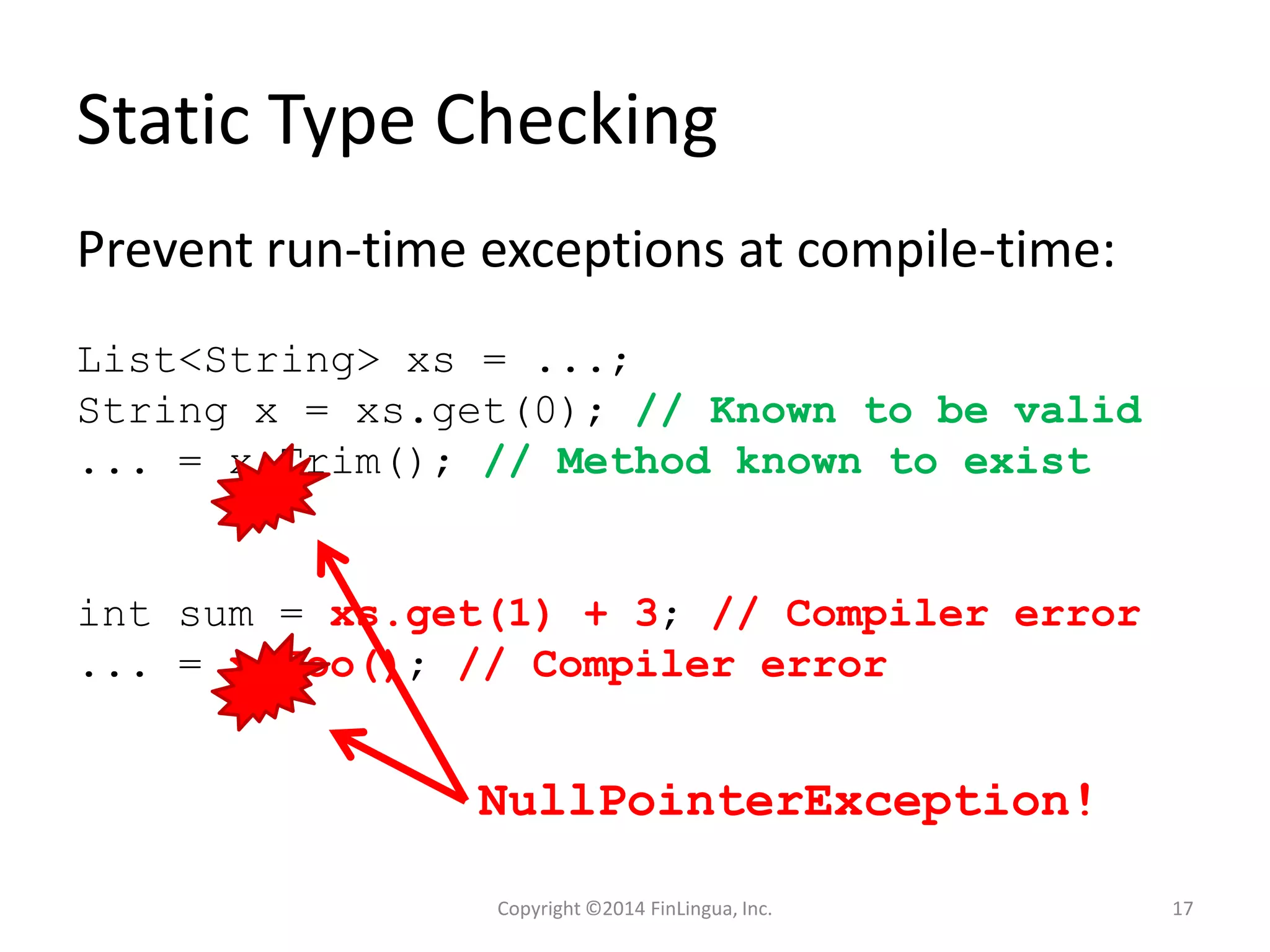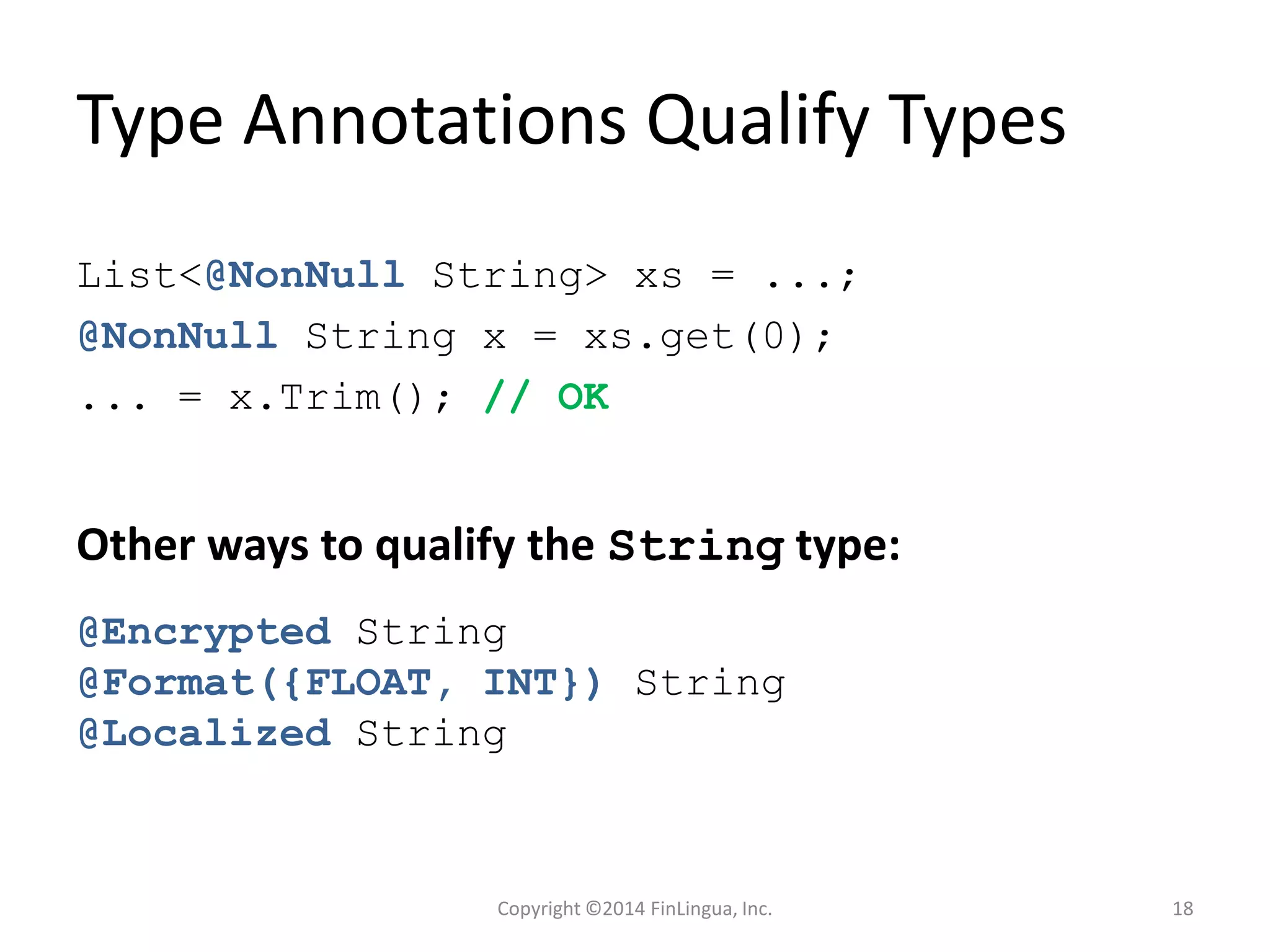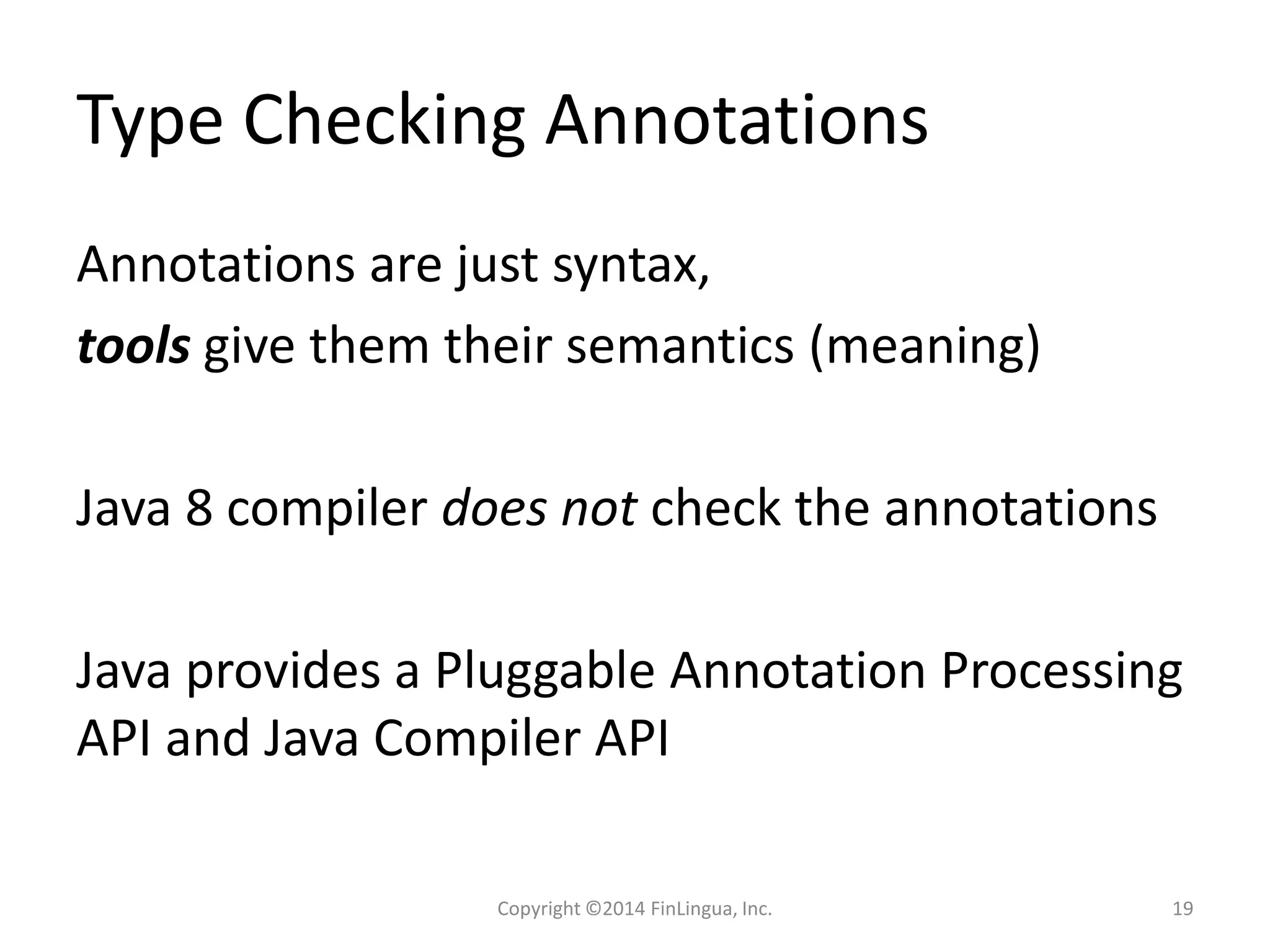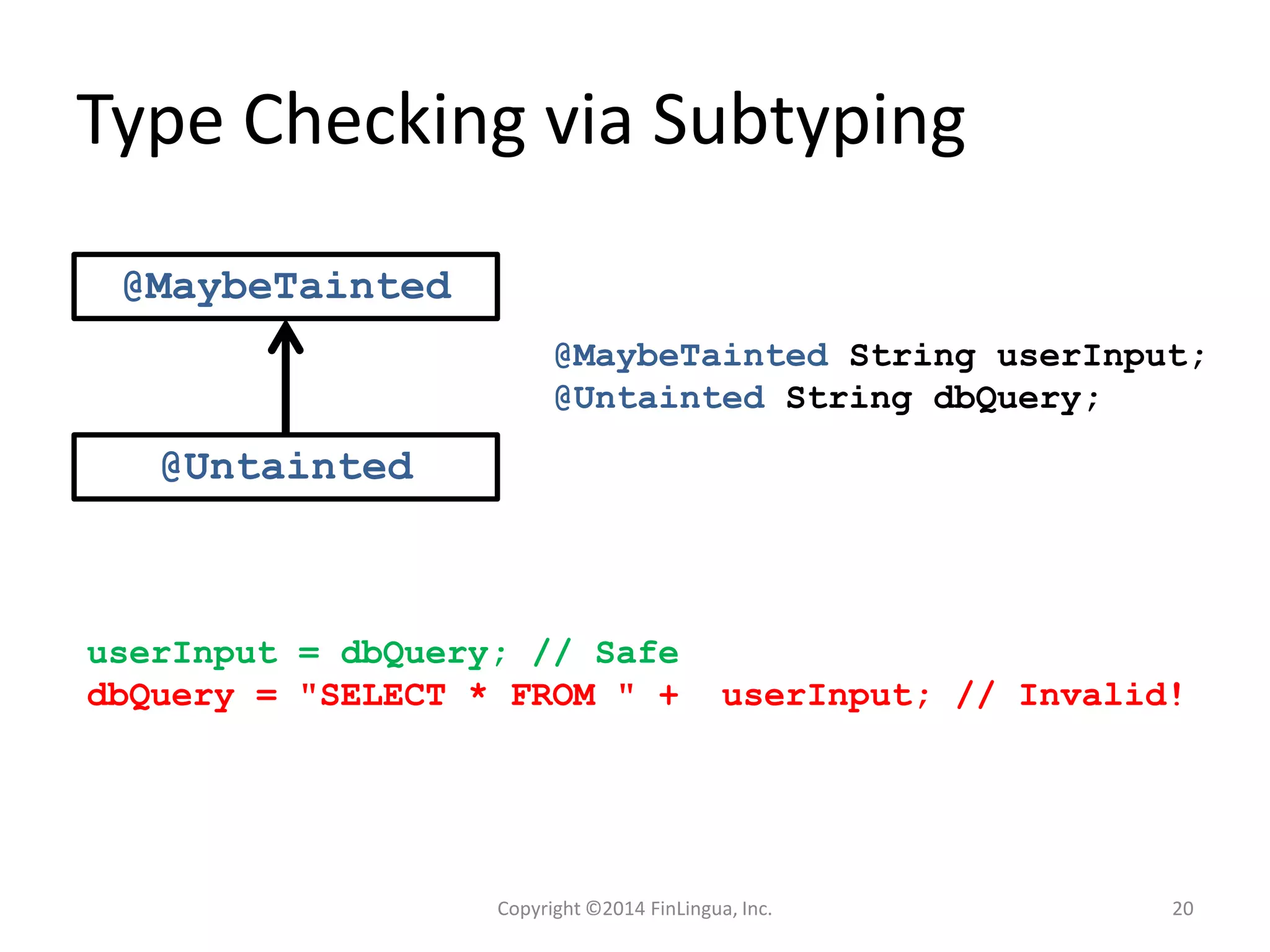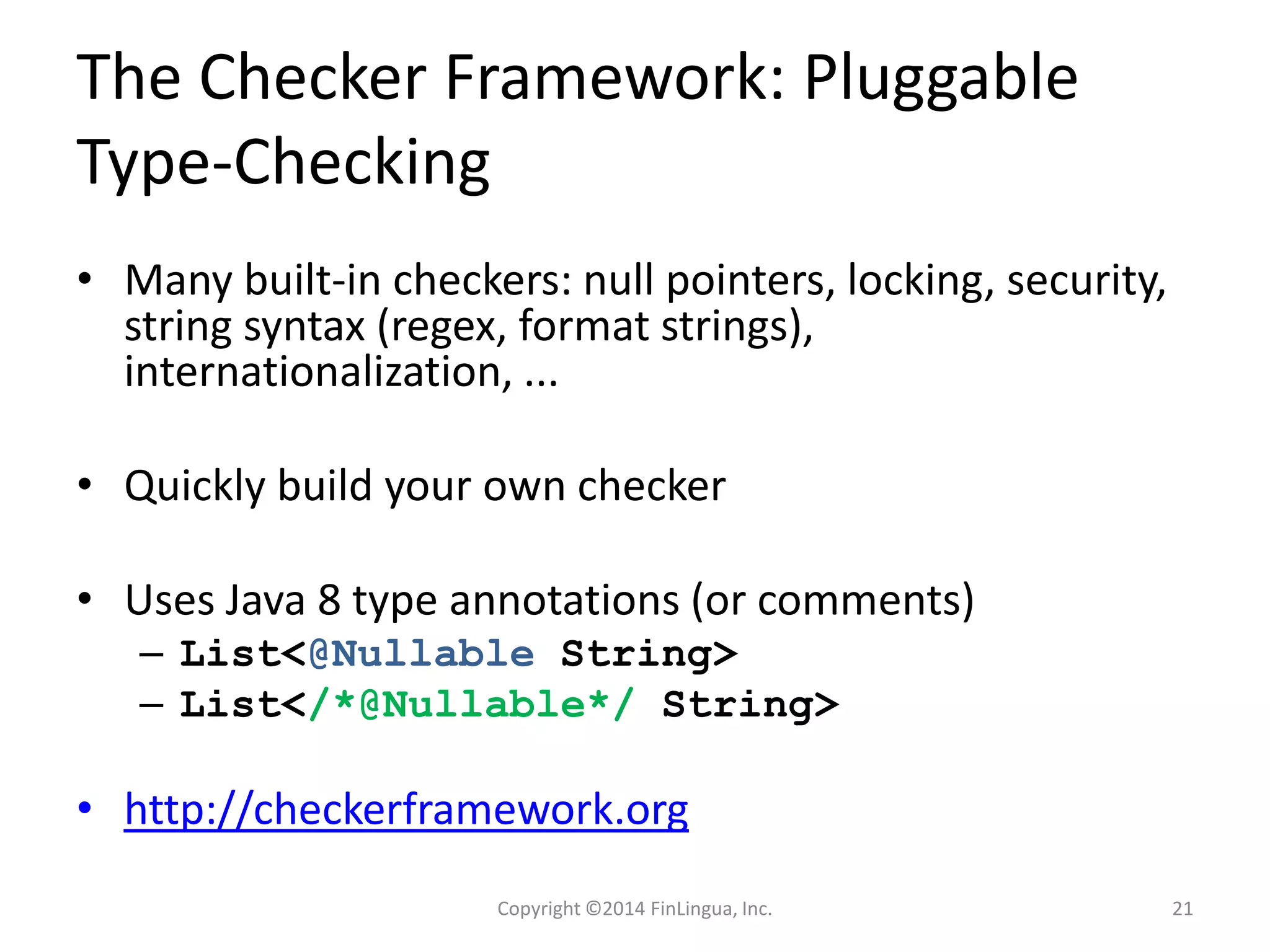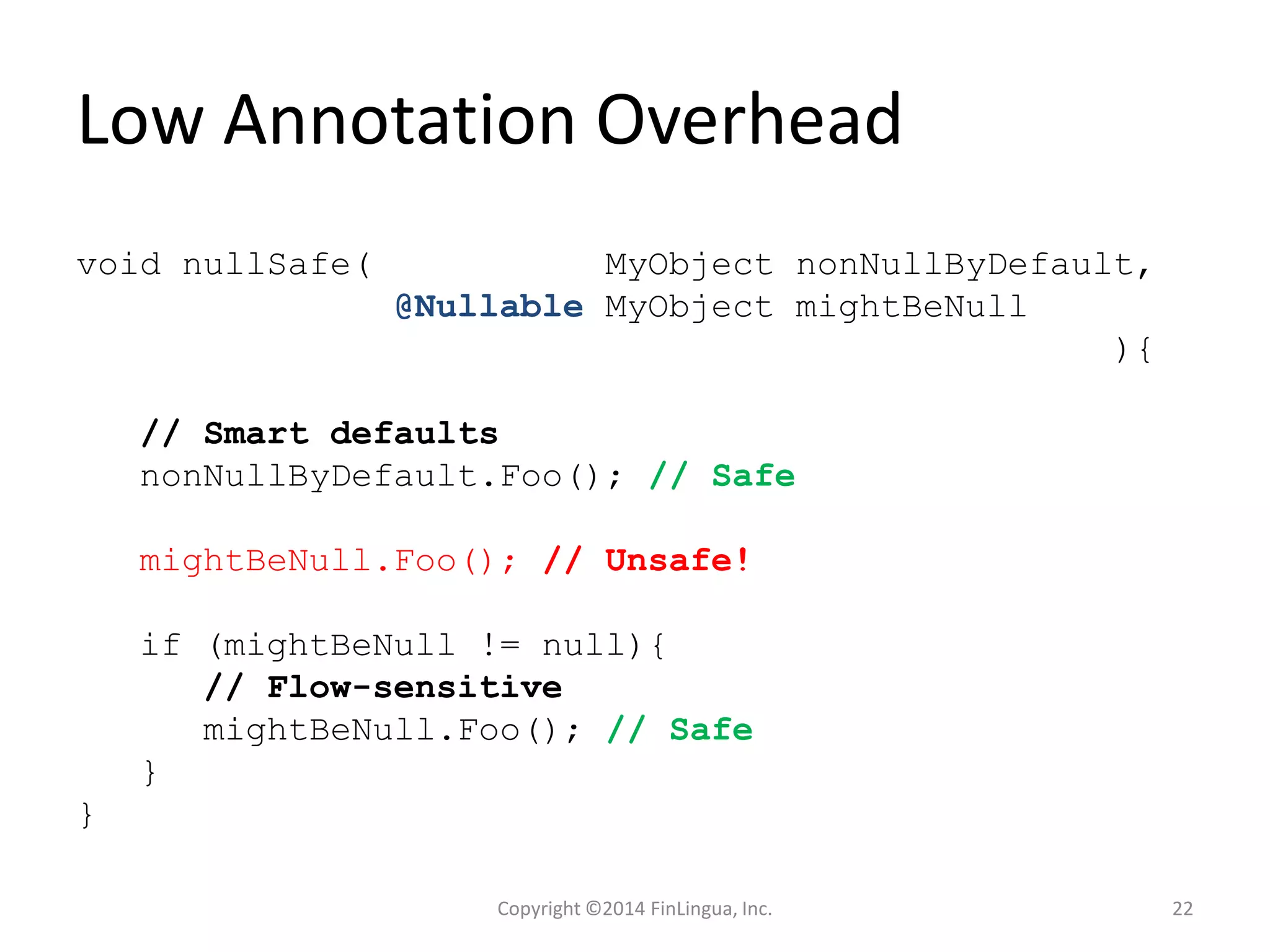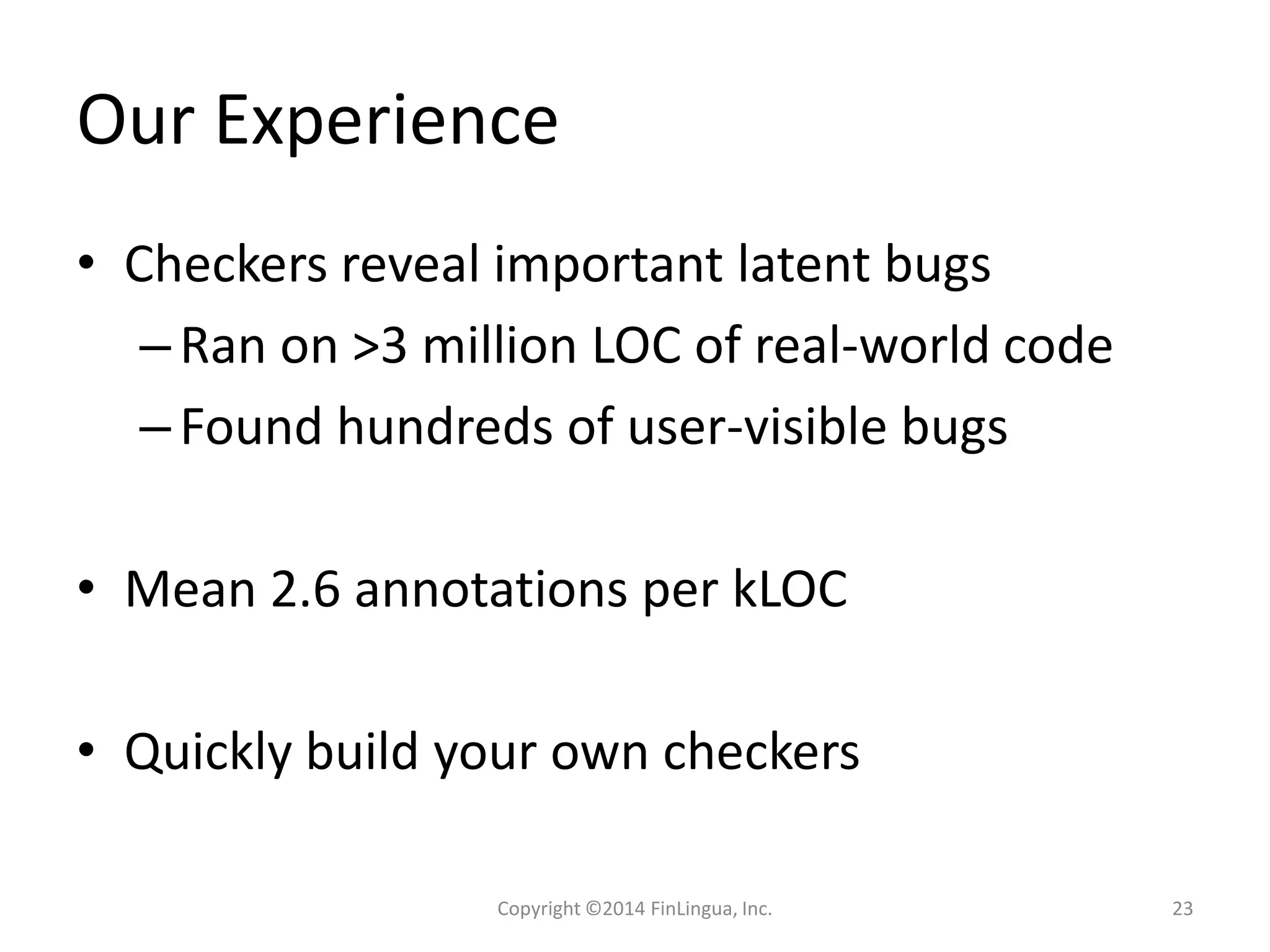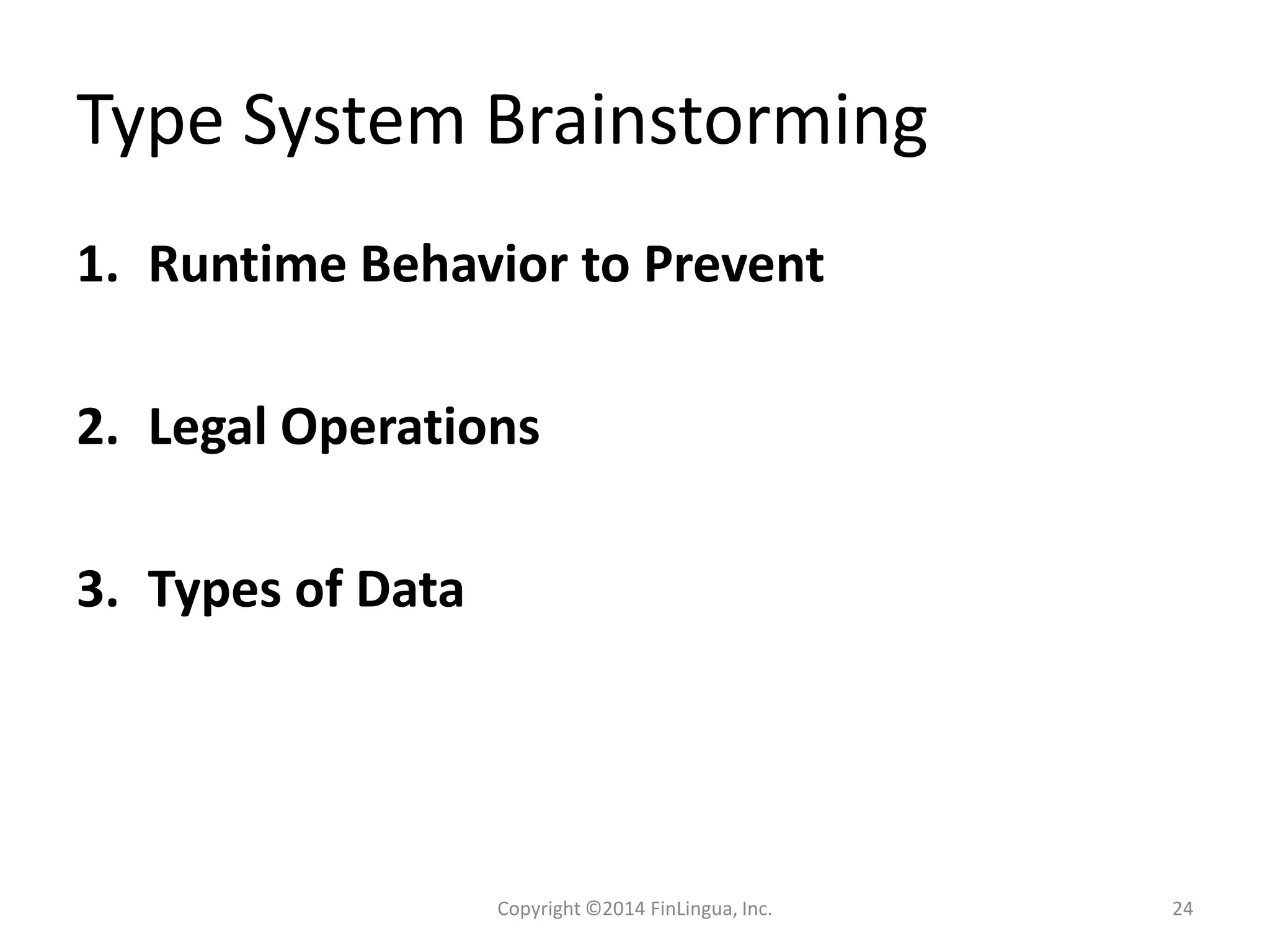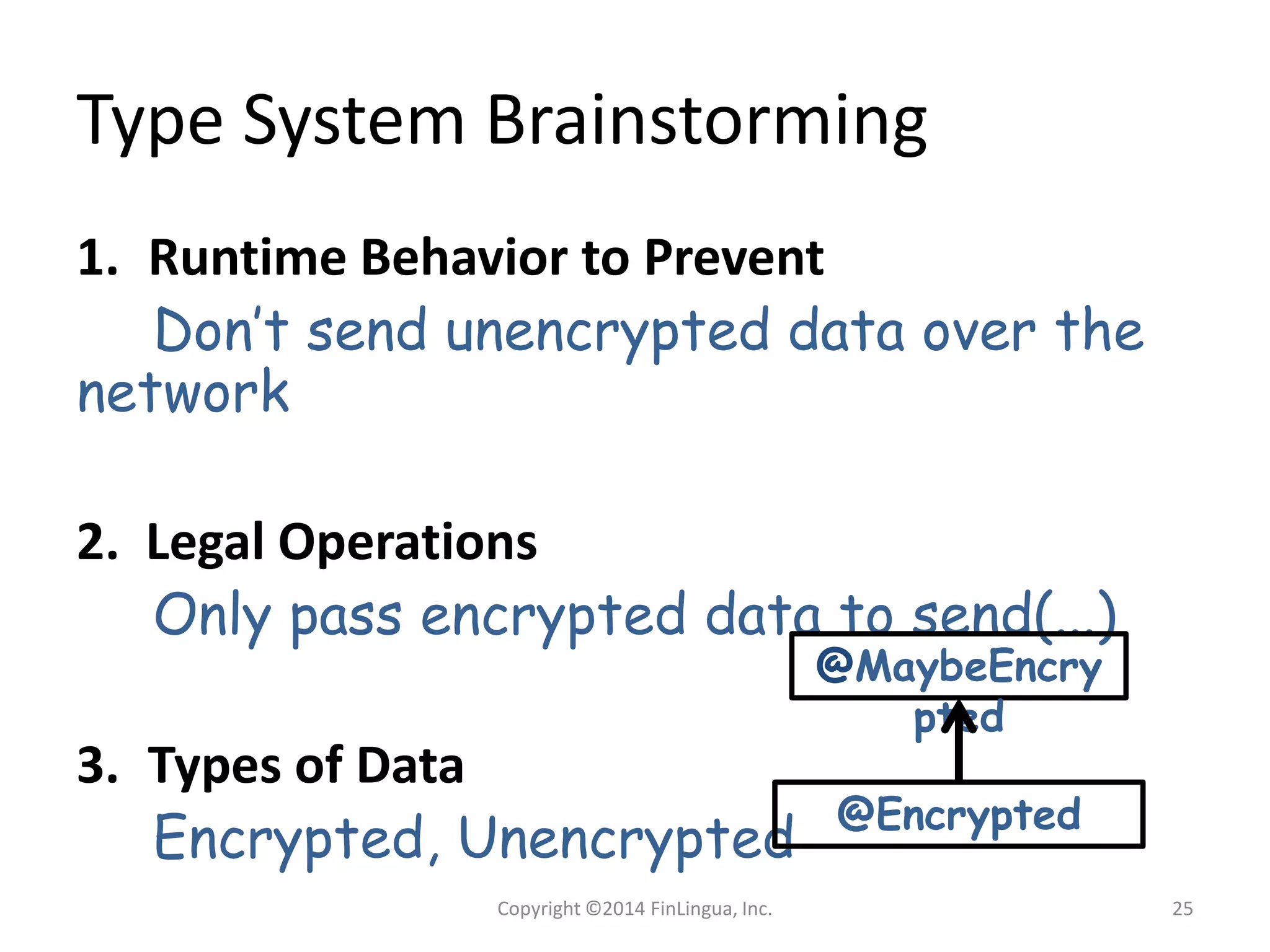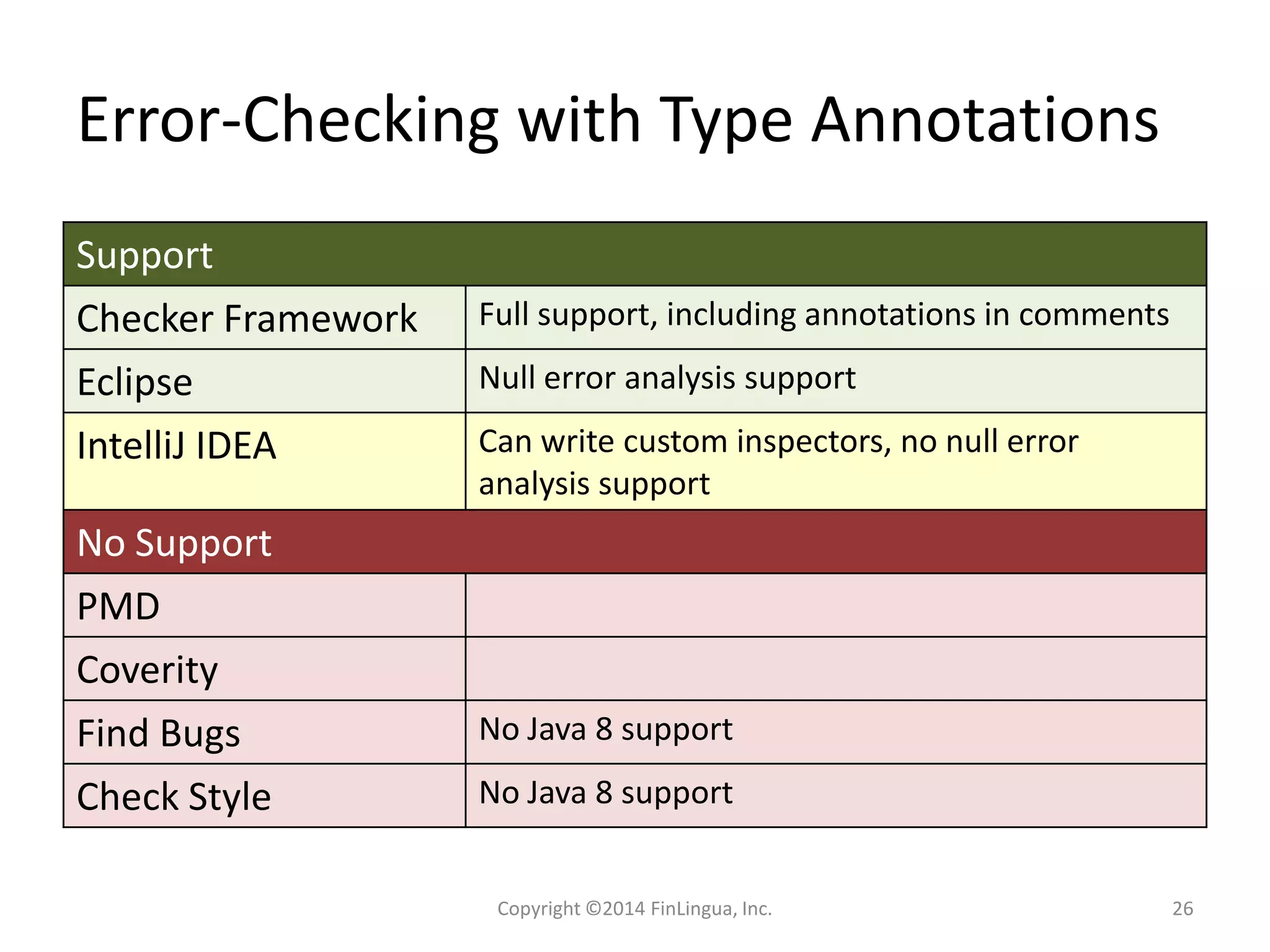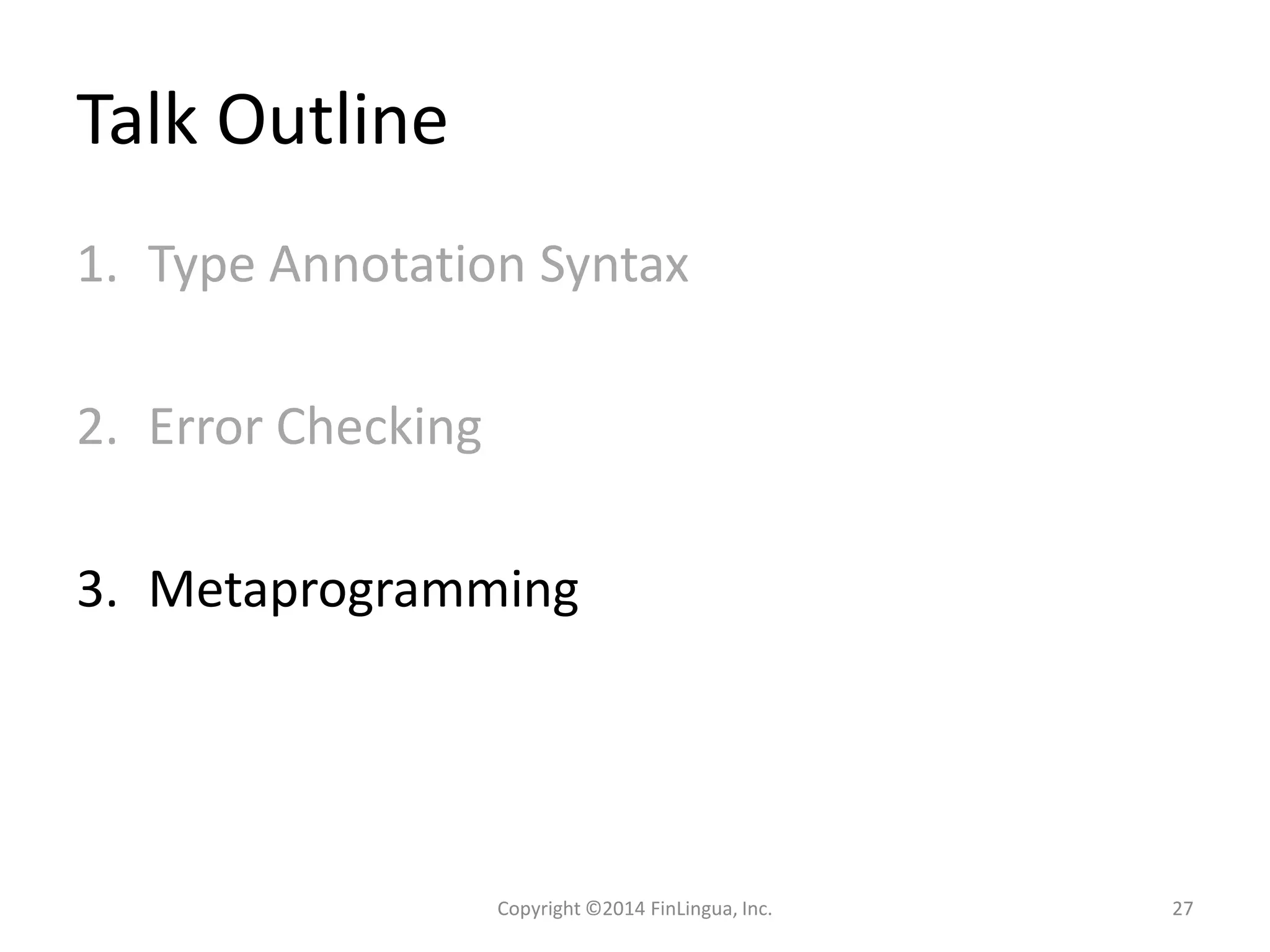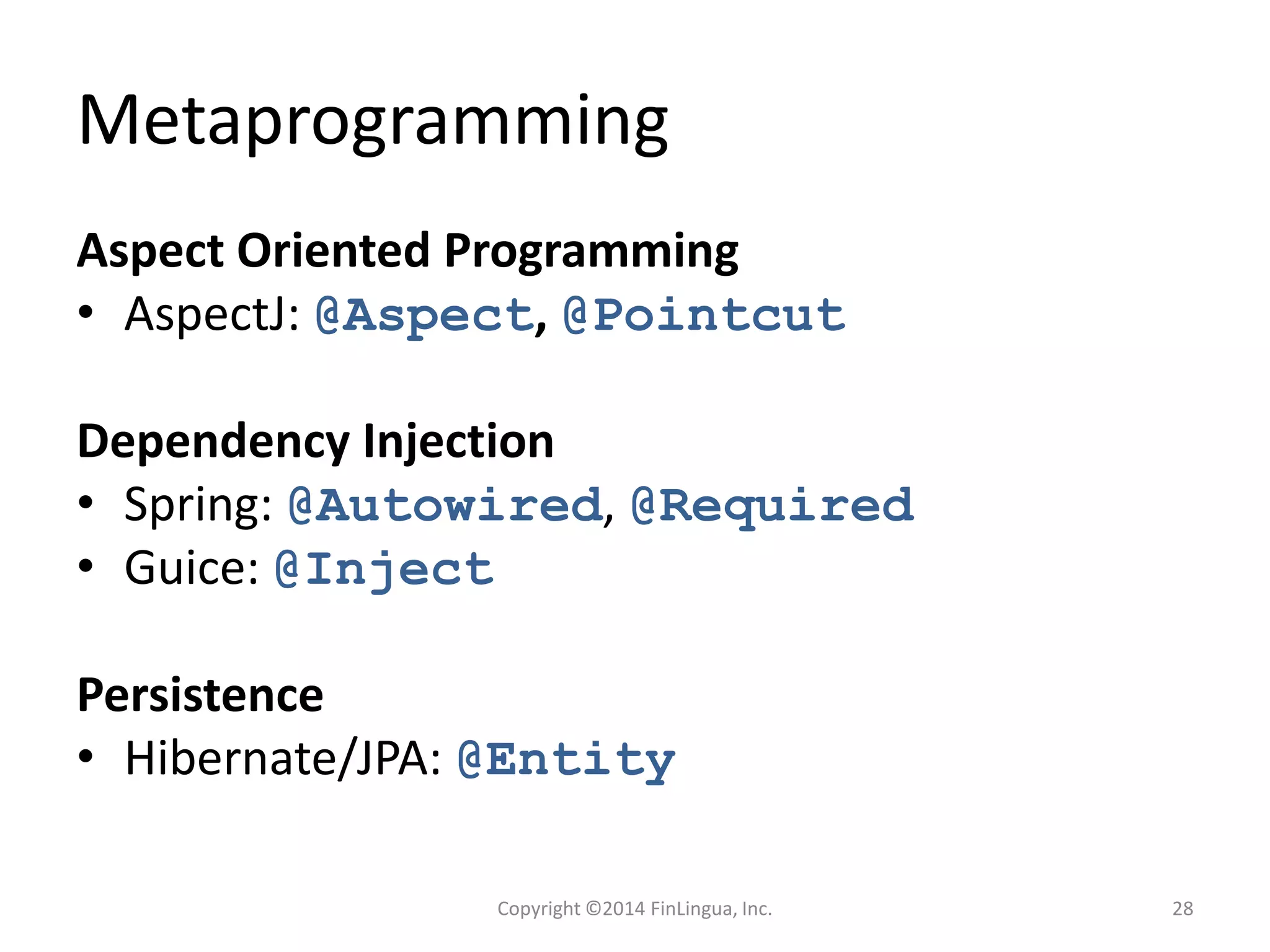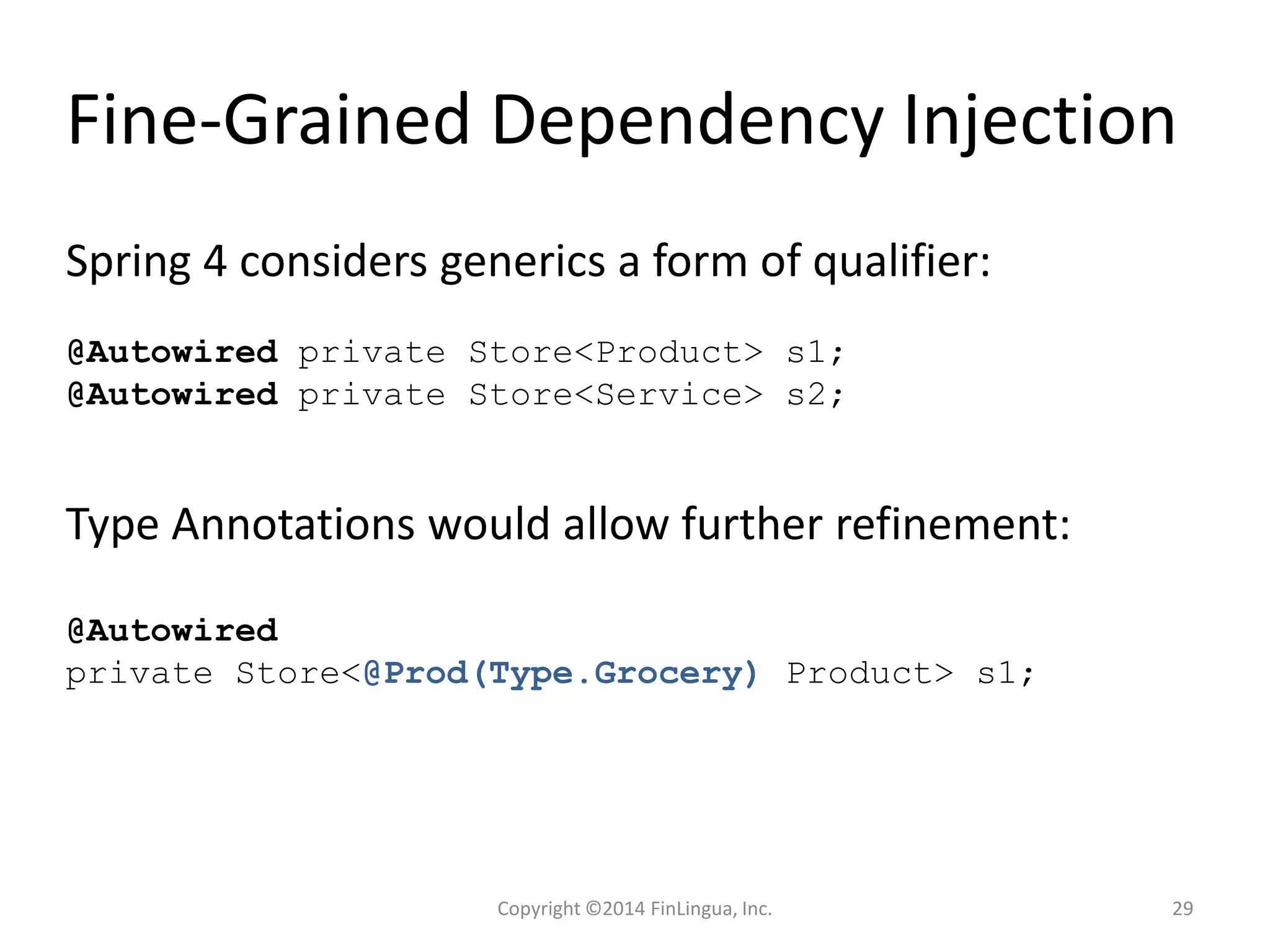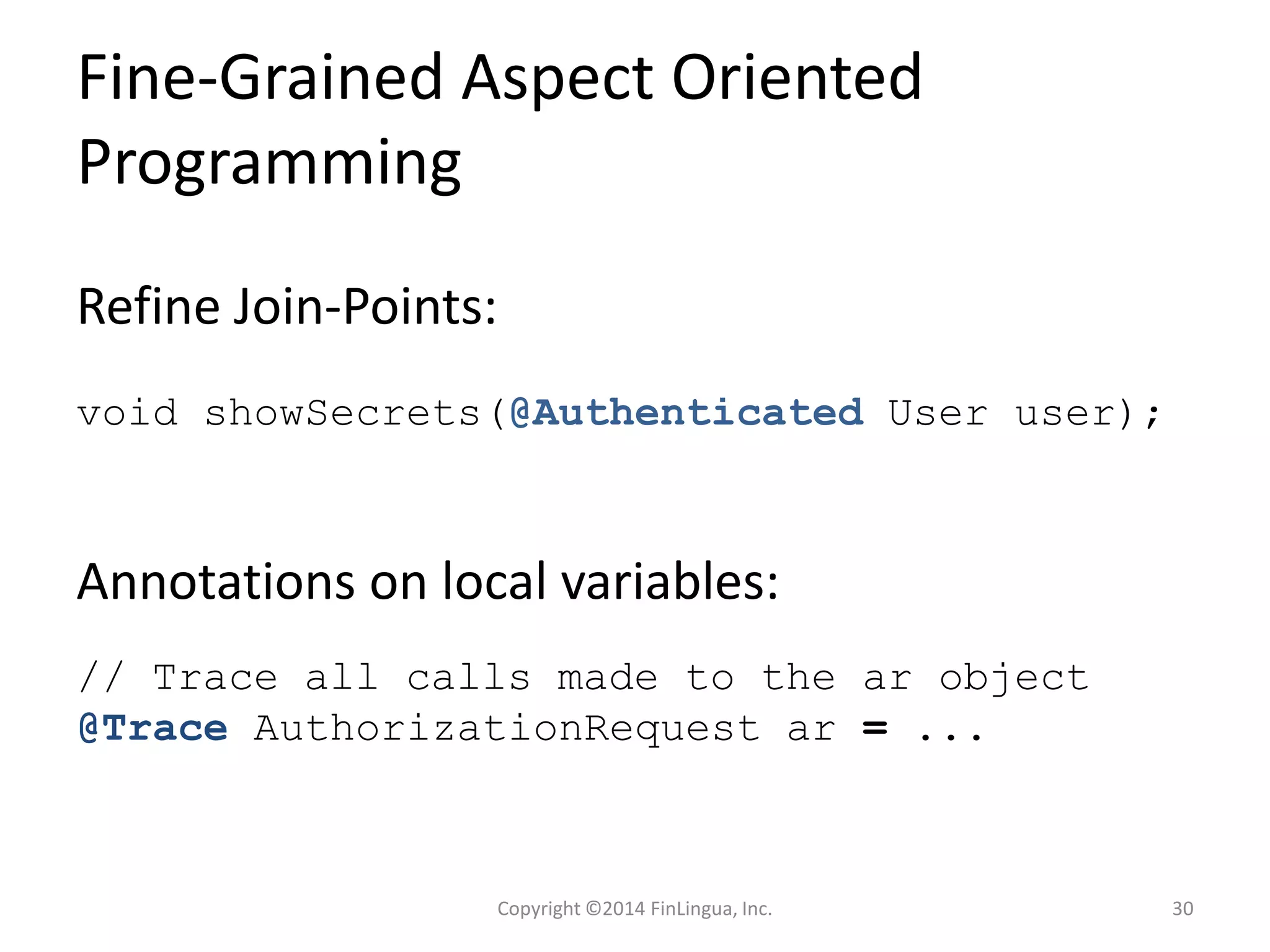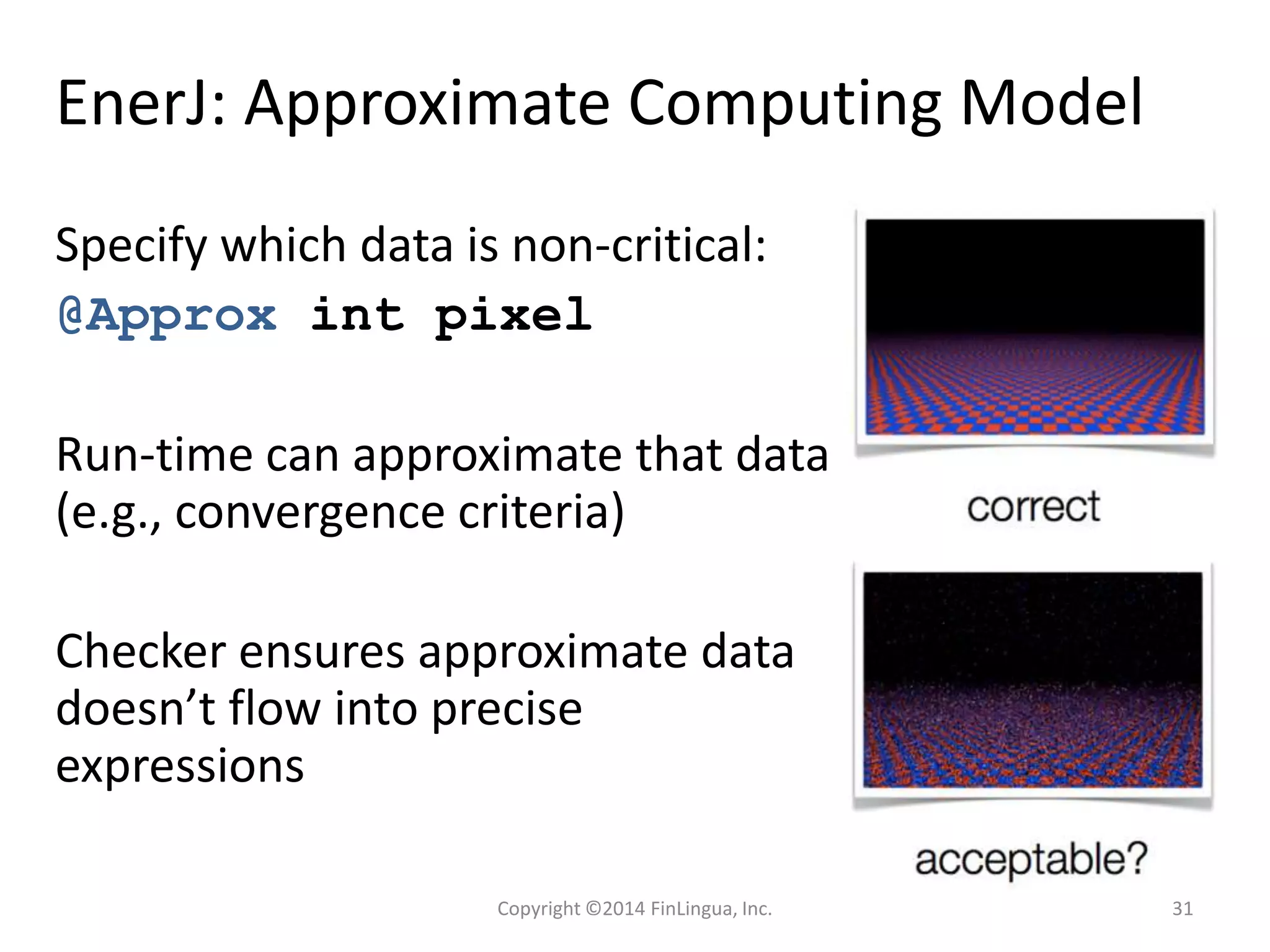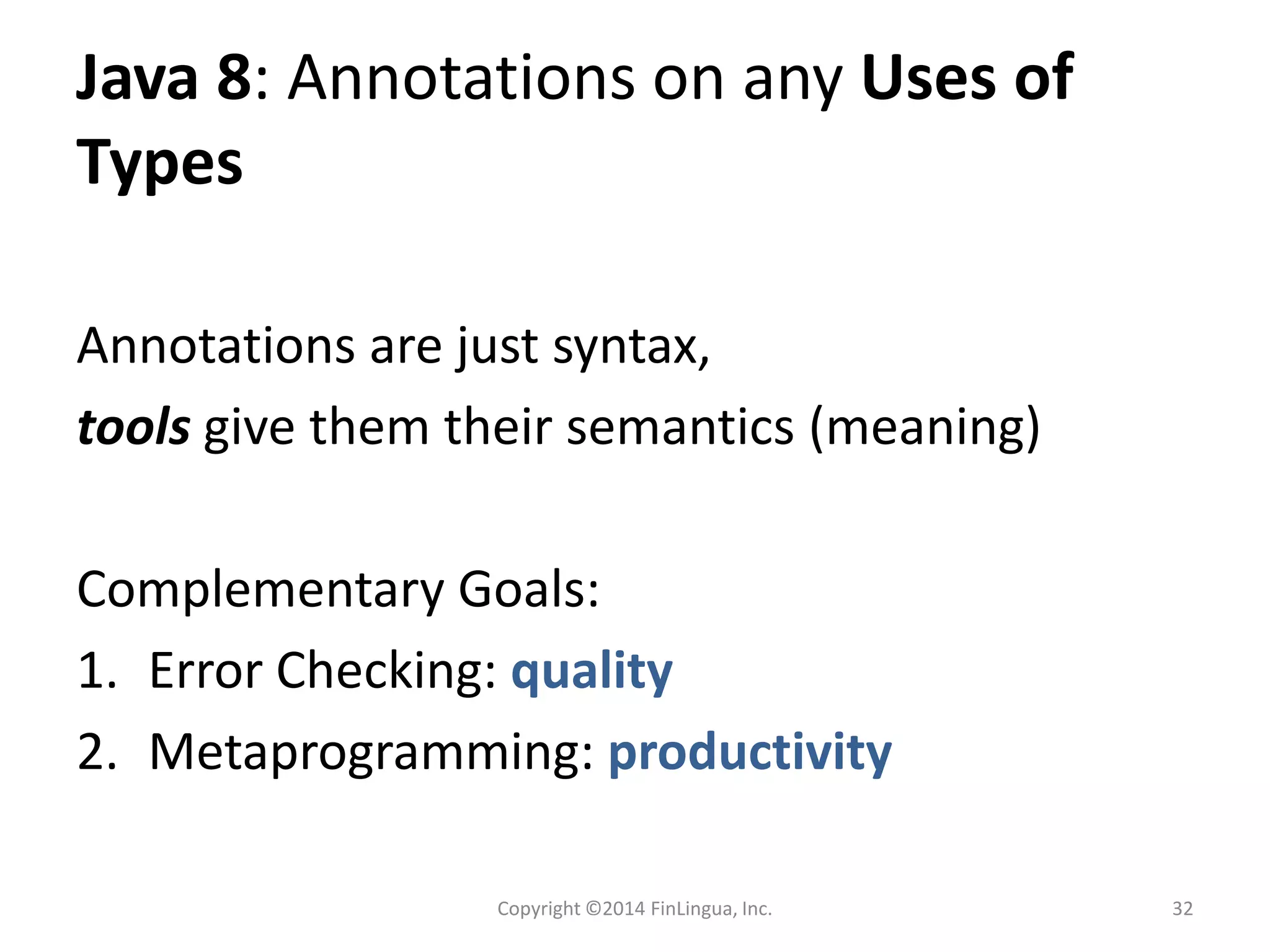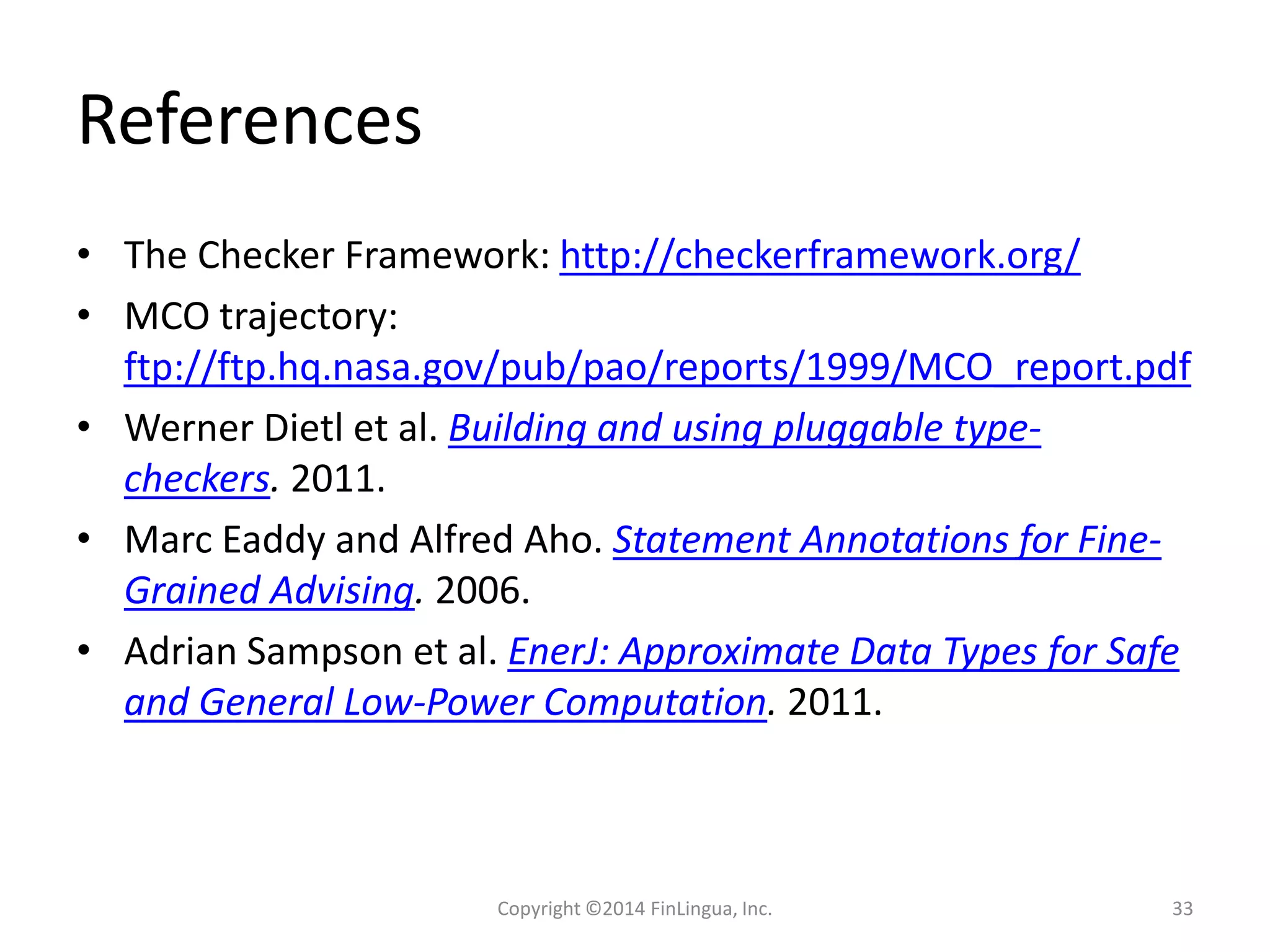The document discusses the introduction of type annotations in Java 8, highlighting their syntax and the advantages they offer for error checking and metaprogramming. It emphasizes that annotations serve merely as syntax, while tools and frameworks like the Checker Framework provide the necessary semantics and error-checking capabilities. Additionally, the document outlines potential applications of type annotations in various programming contexts, including persistence and aspect-oriented programming.

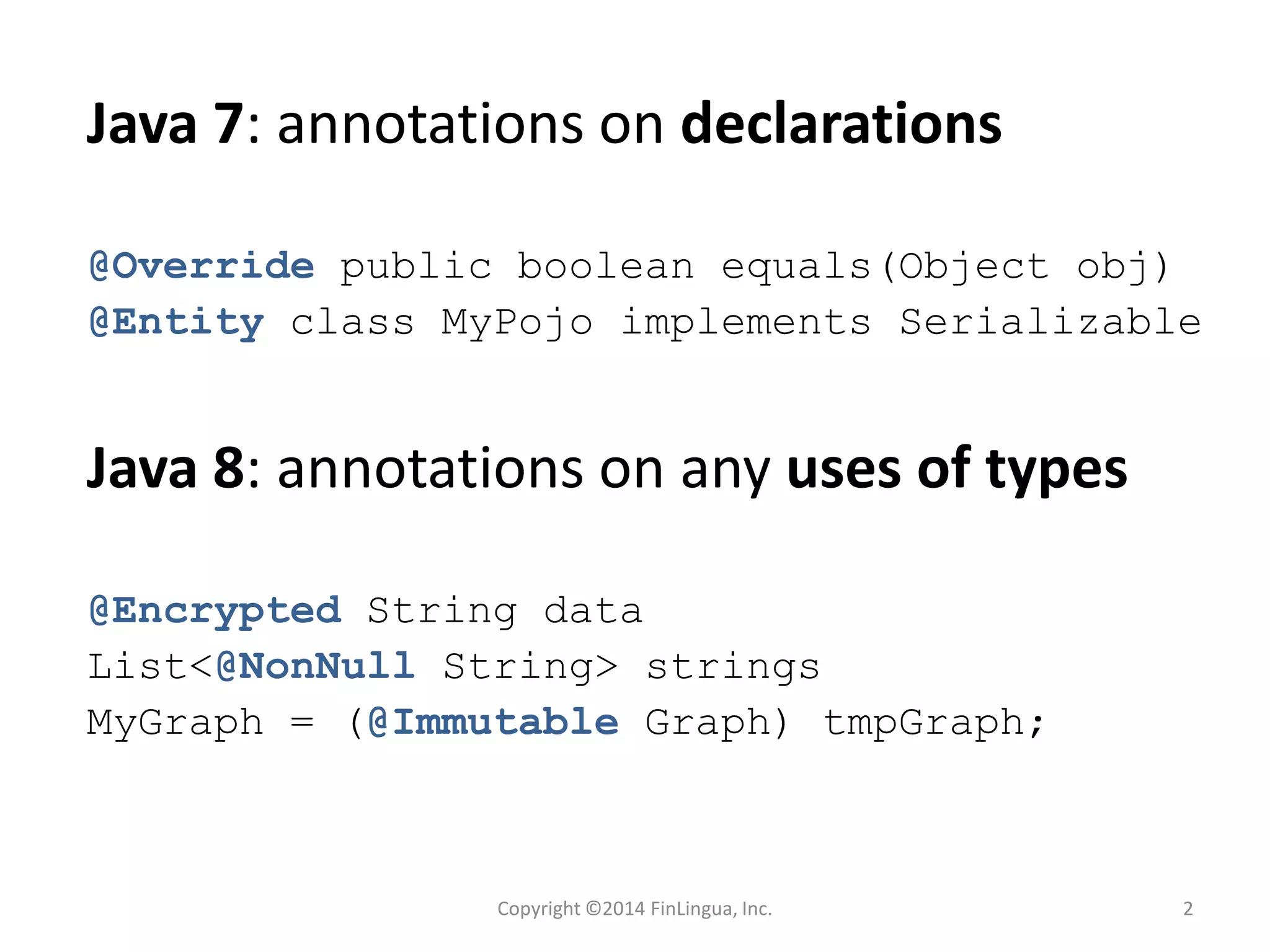
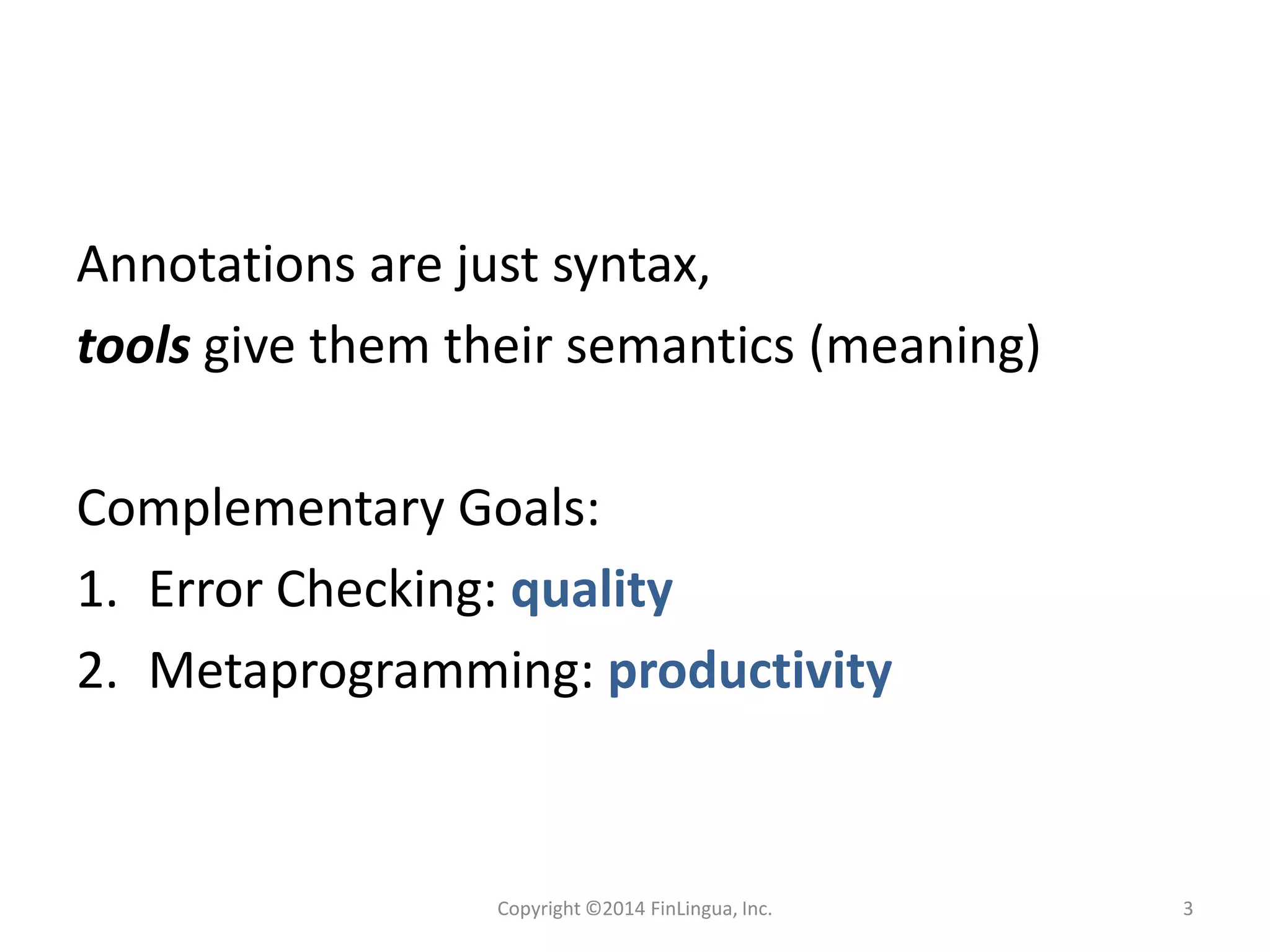
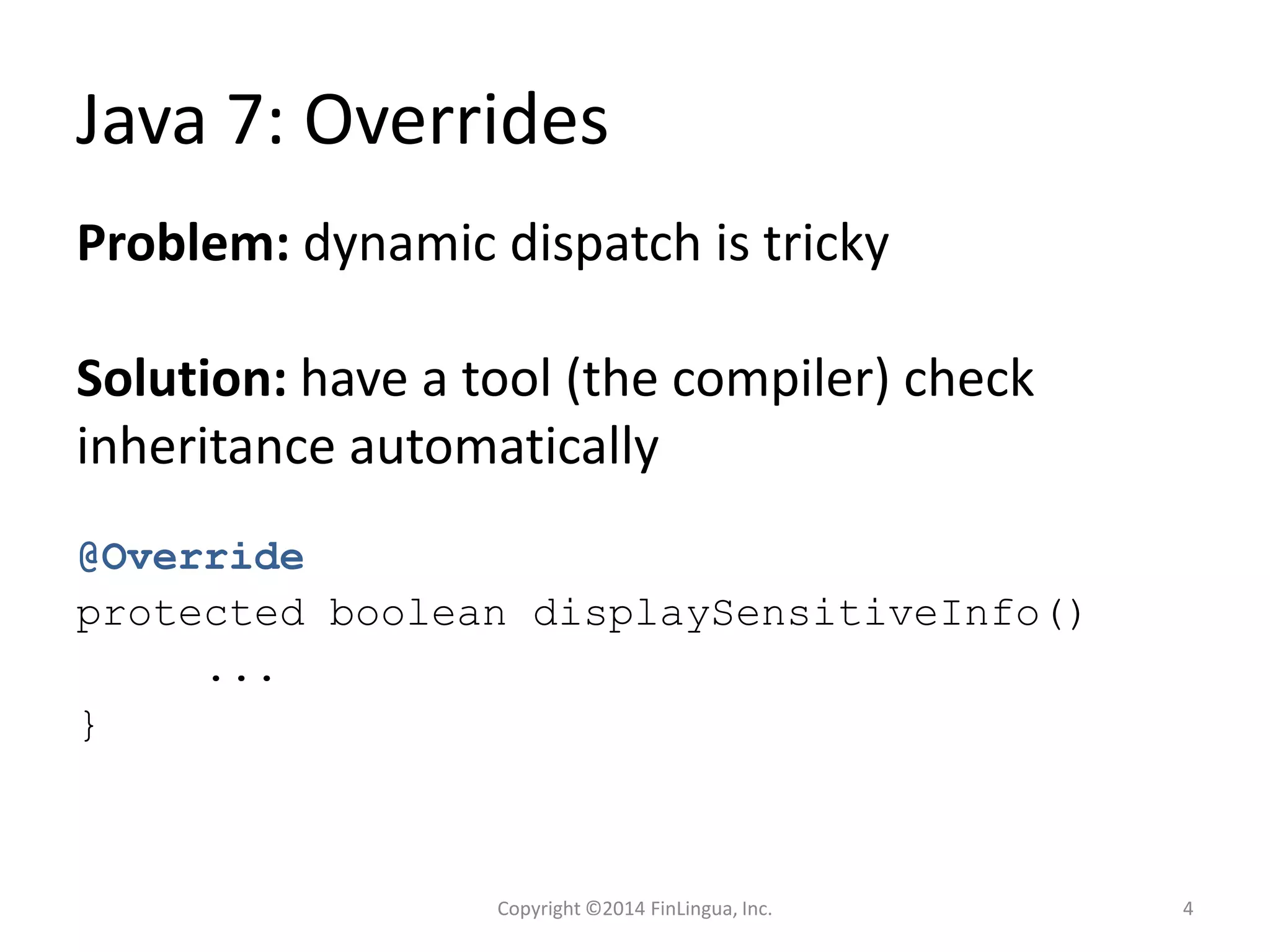
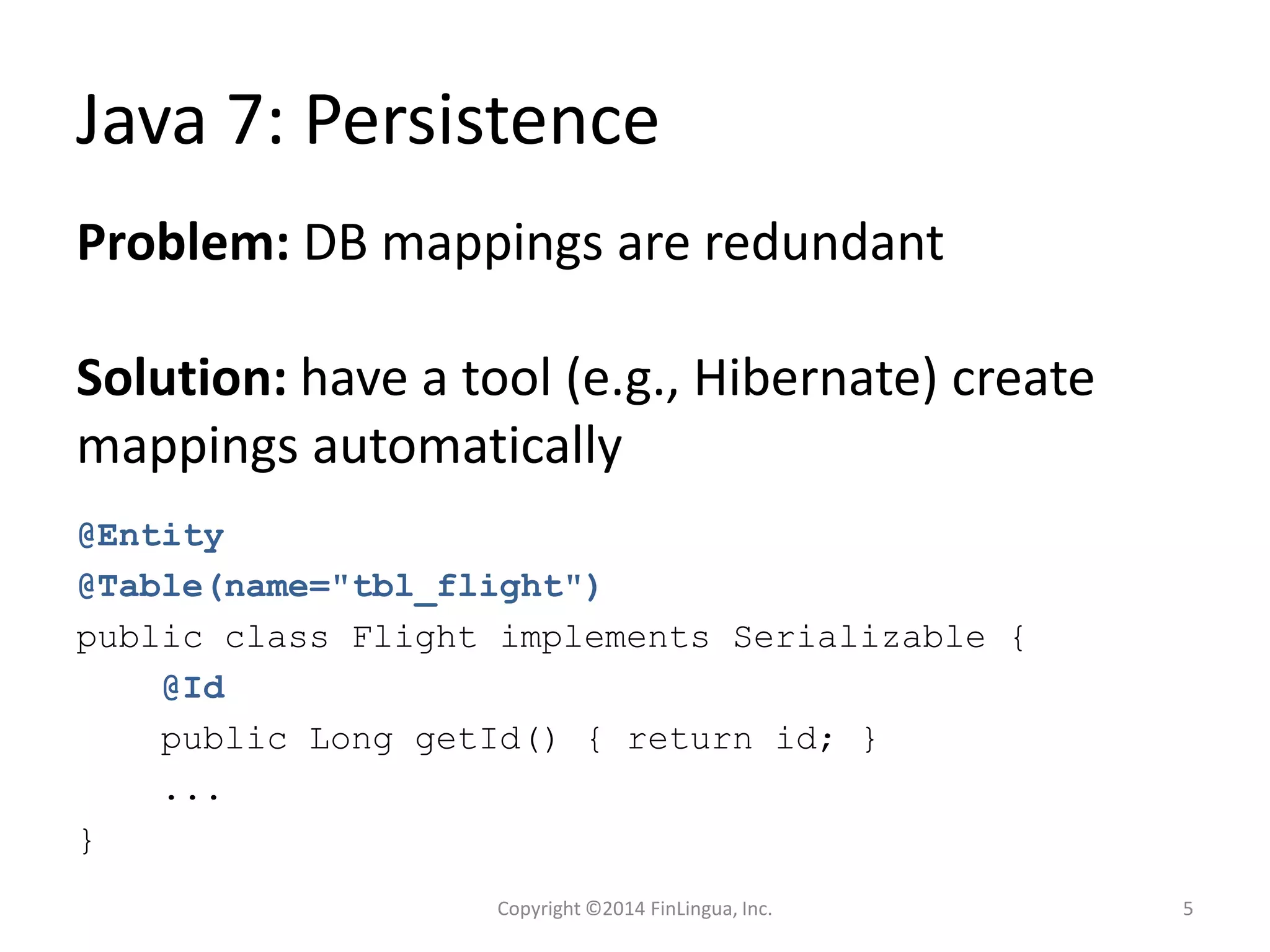
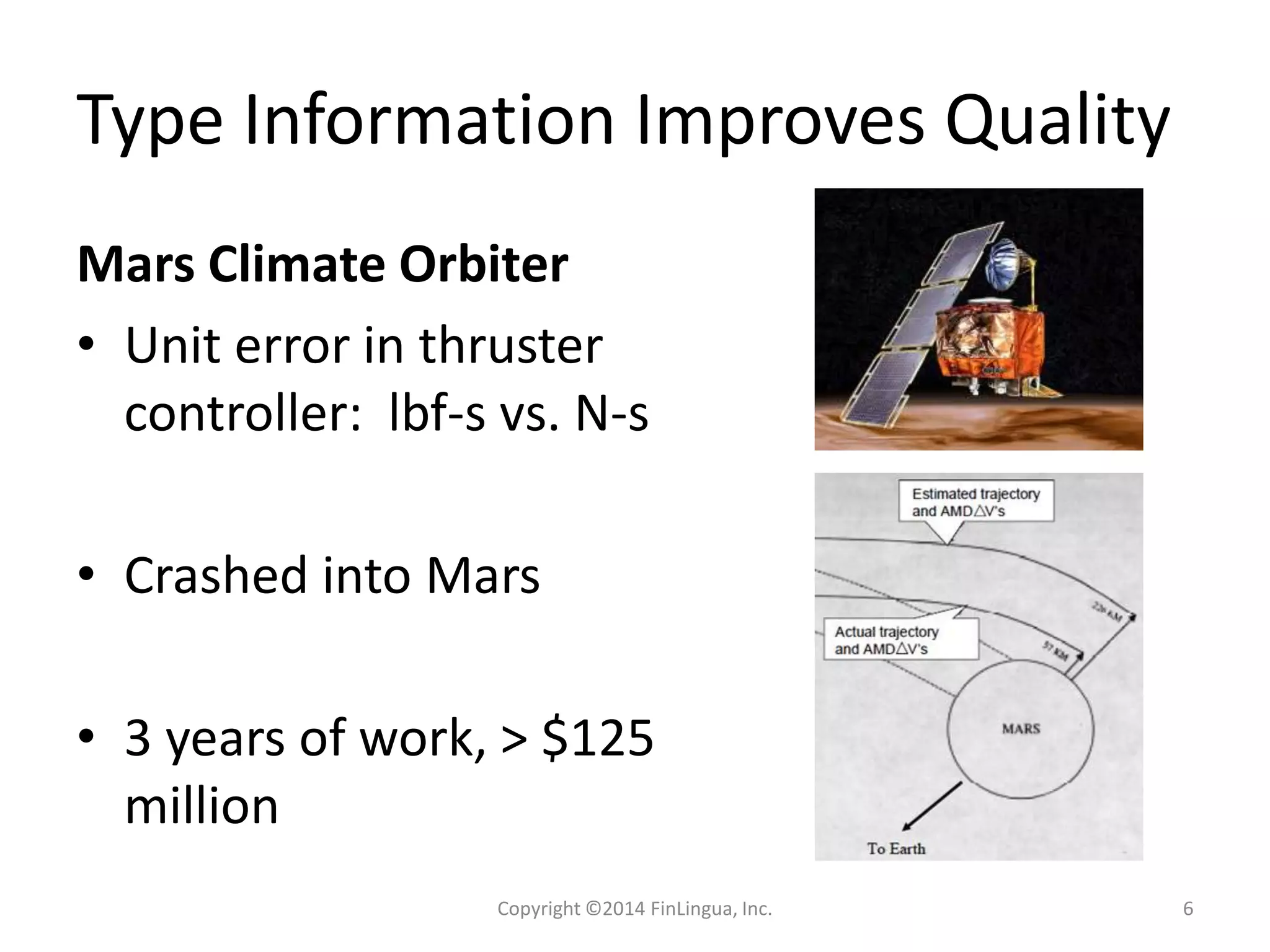
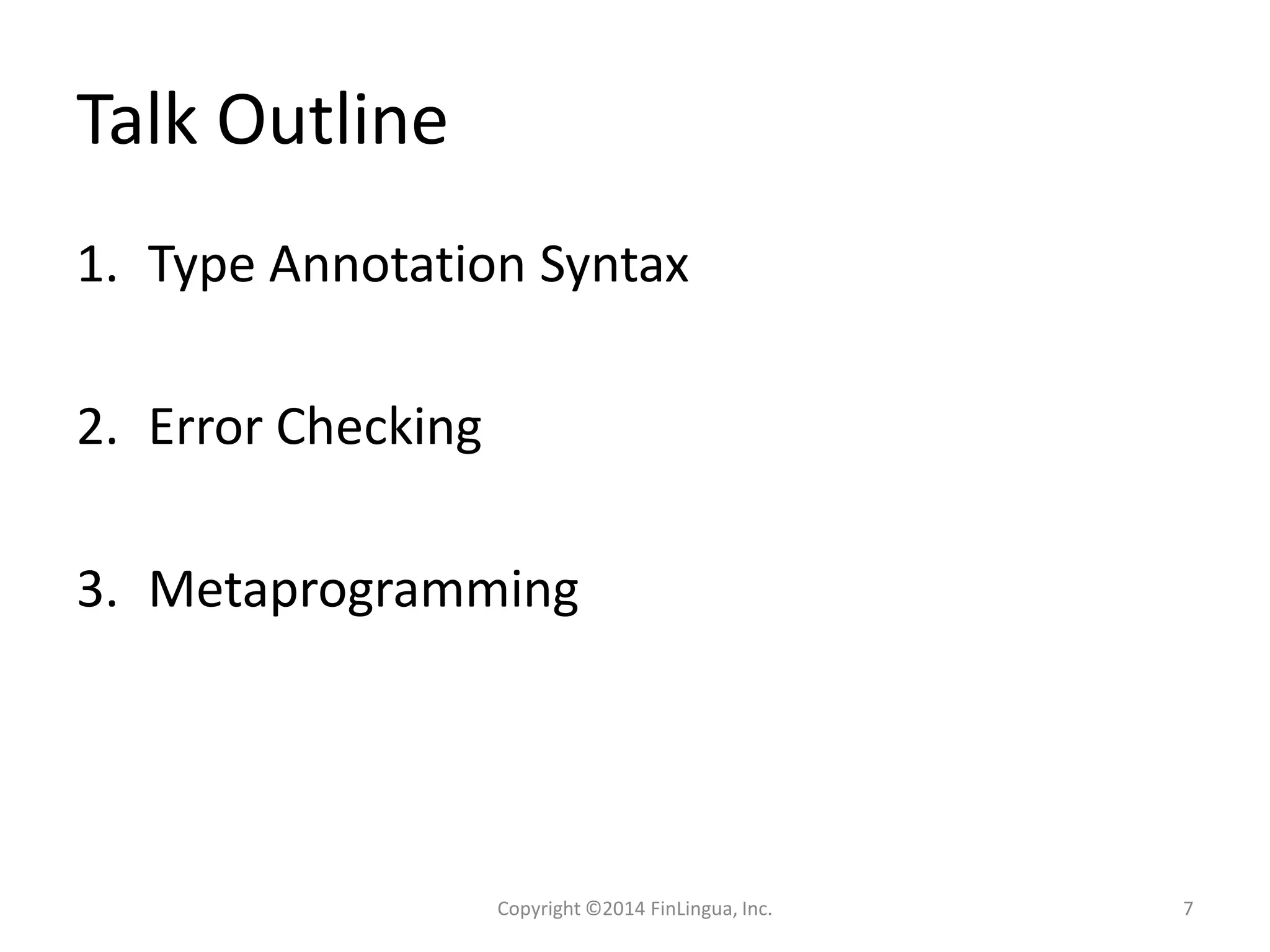
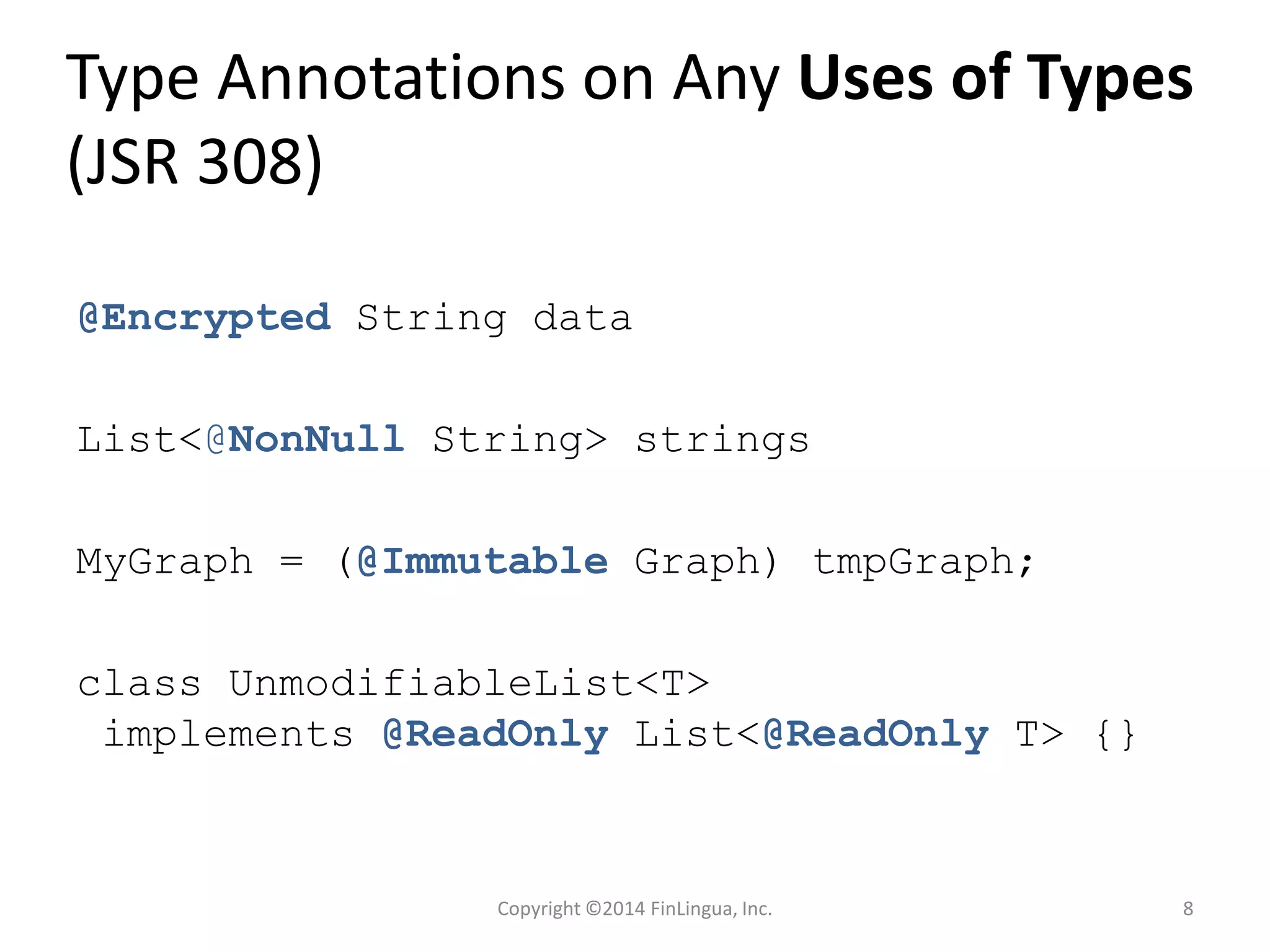
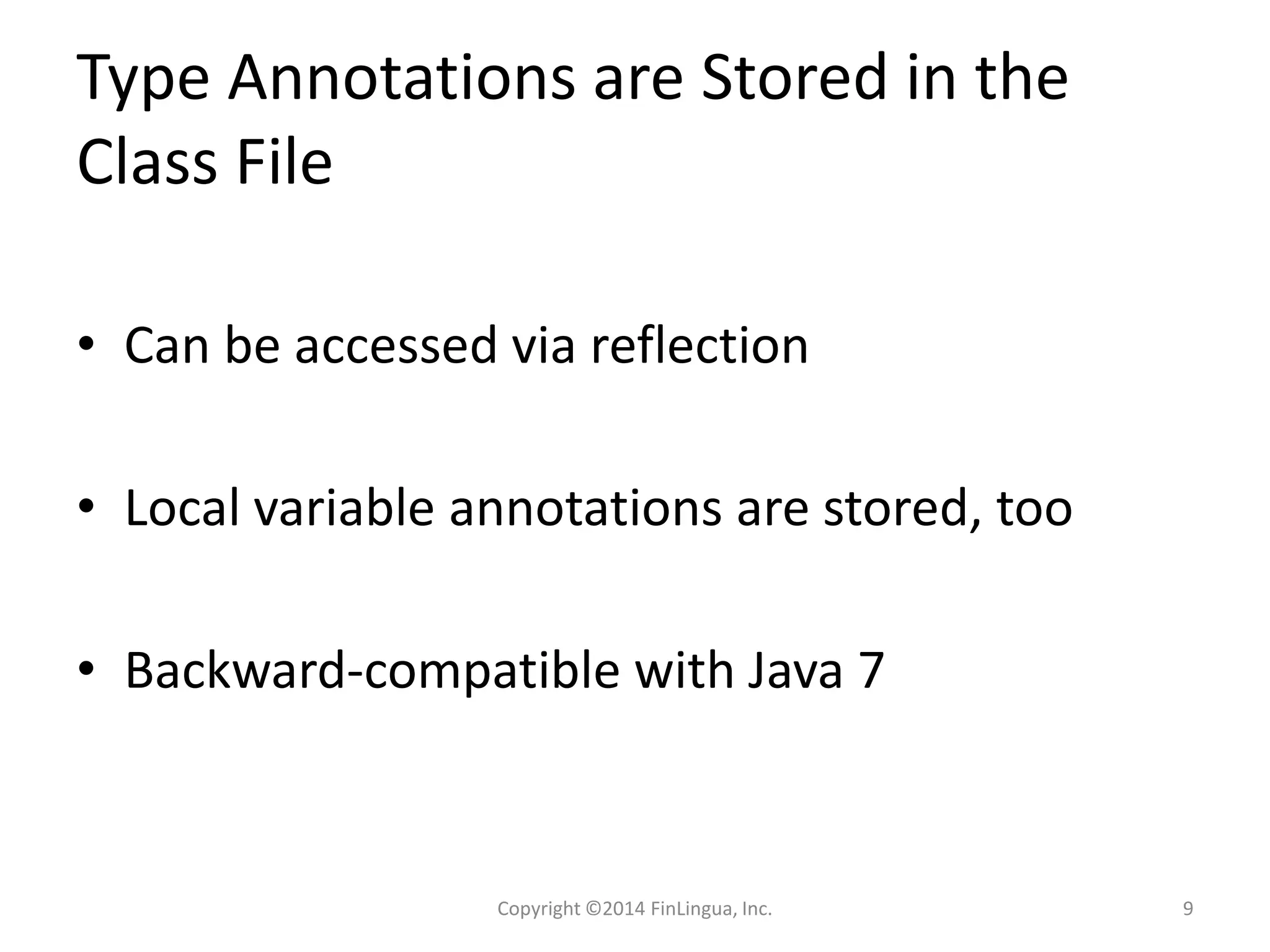
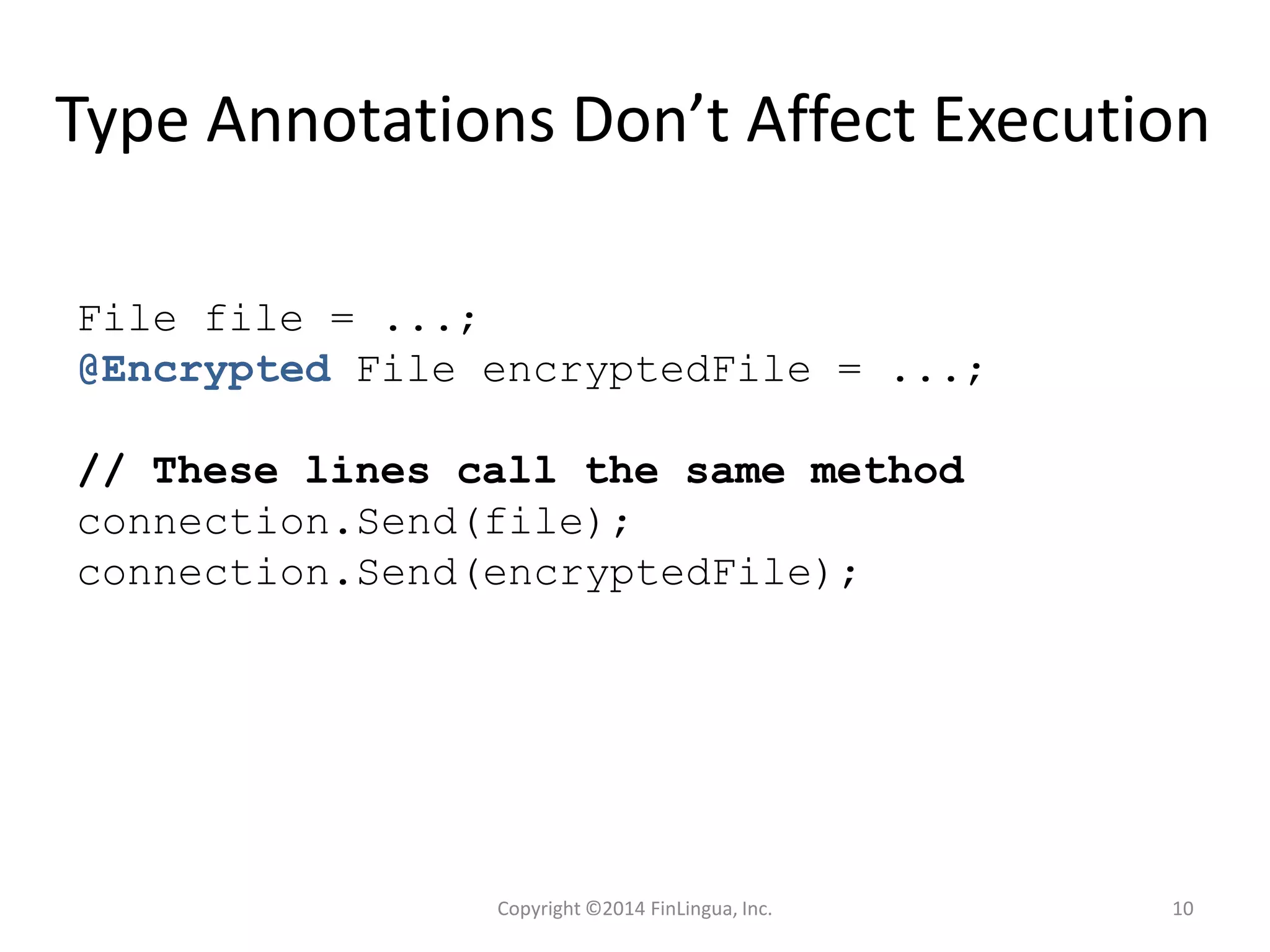
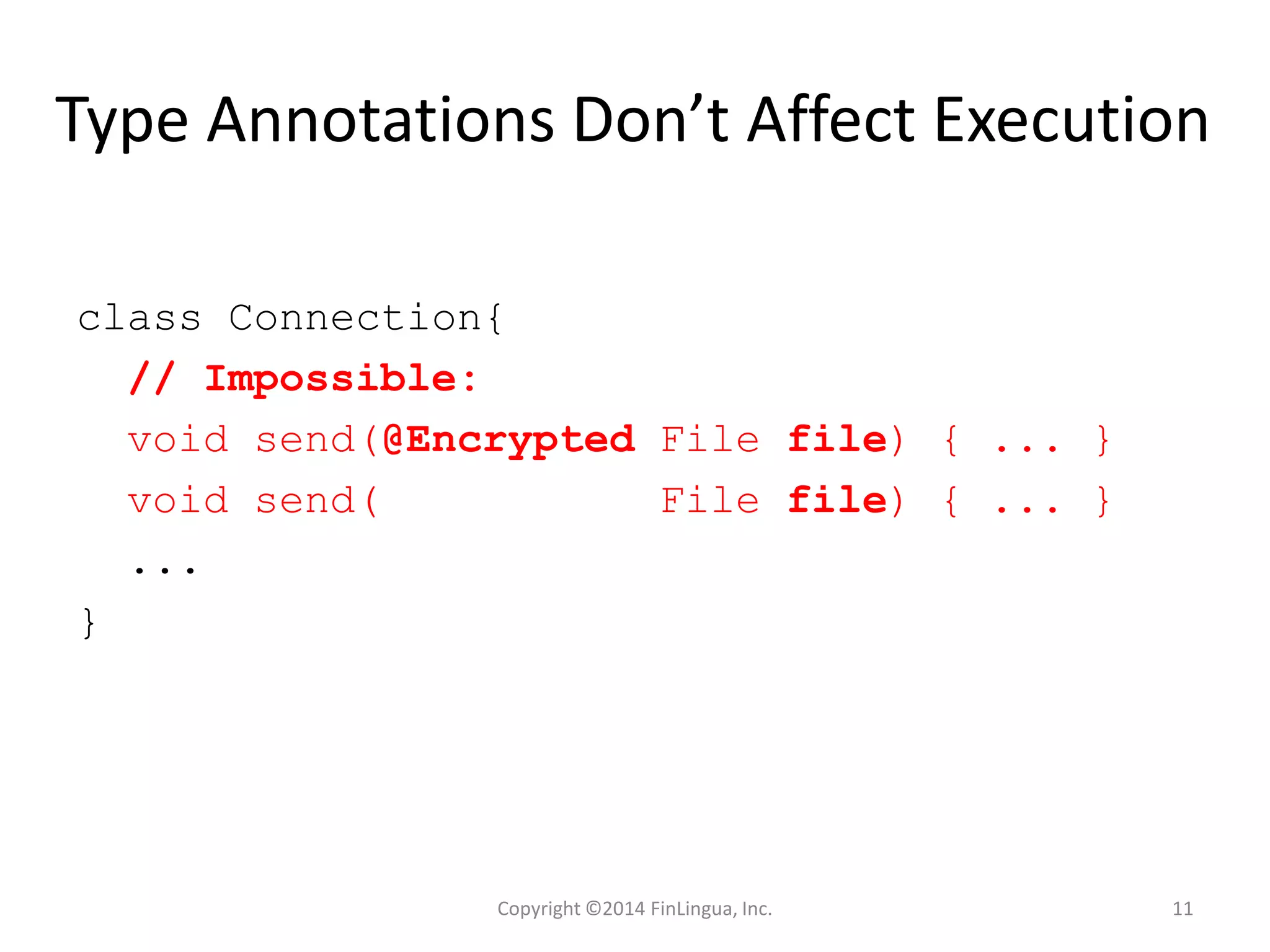
![Receiver Annotations
Receiver
@Open MyFile file = ...;
... = file.read();
class MyFile {
Byte[] read() { ... }
...
}
Where is the type
of this?
Copyright ©2014 FinLingua, Inc. 12](https://image.slidesharecdn.com/java8typeannotations-online-140326155316-phpapp01/75/Type-Annotations-in-Java-8-12-2048.jpg)
![Receiver Annotations
Receiver
@Open MyFile file = ...;
... = file.read();
class MyFile {
Byte[] read(@Open MyFile this) { ... }
...
} New in Java 8
Copyright ©2014 FinLingua, Inc. 13](https://image.slidesharecdn.com/java8typeannotations-online-140326155316-phpapp01/75/Type-Annotations-in-Java-8-13-2048.jpg)
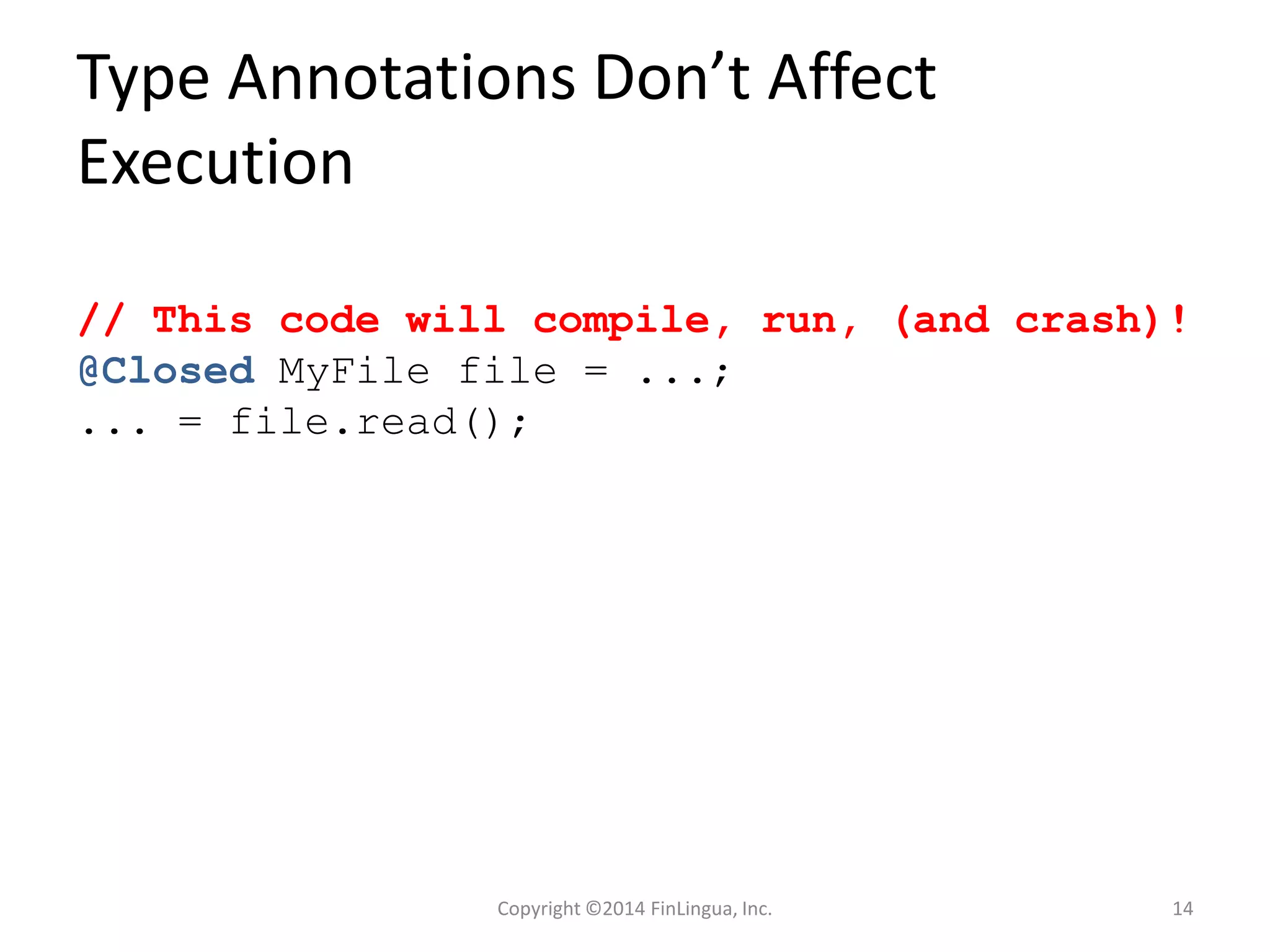
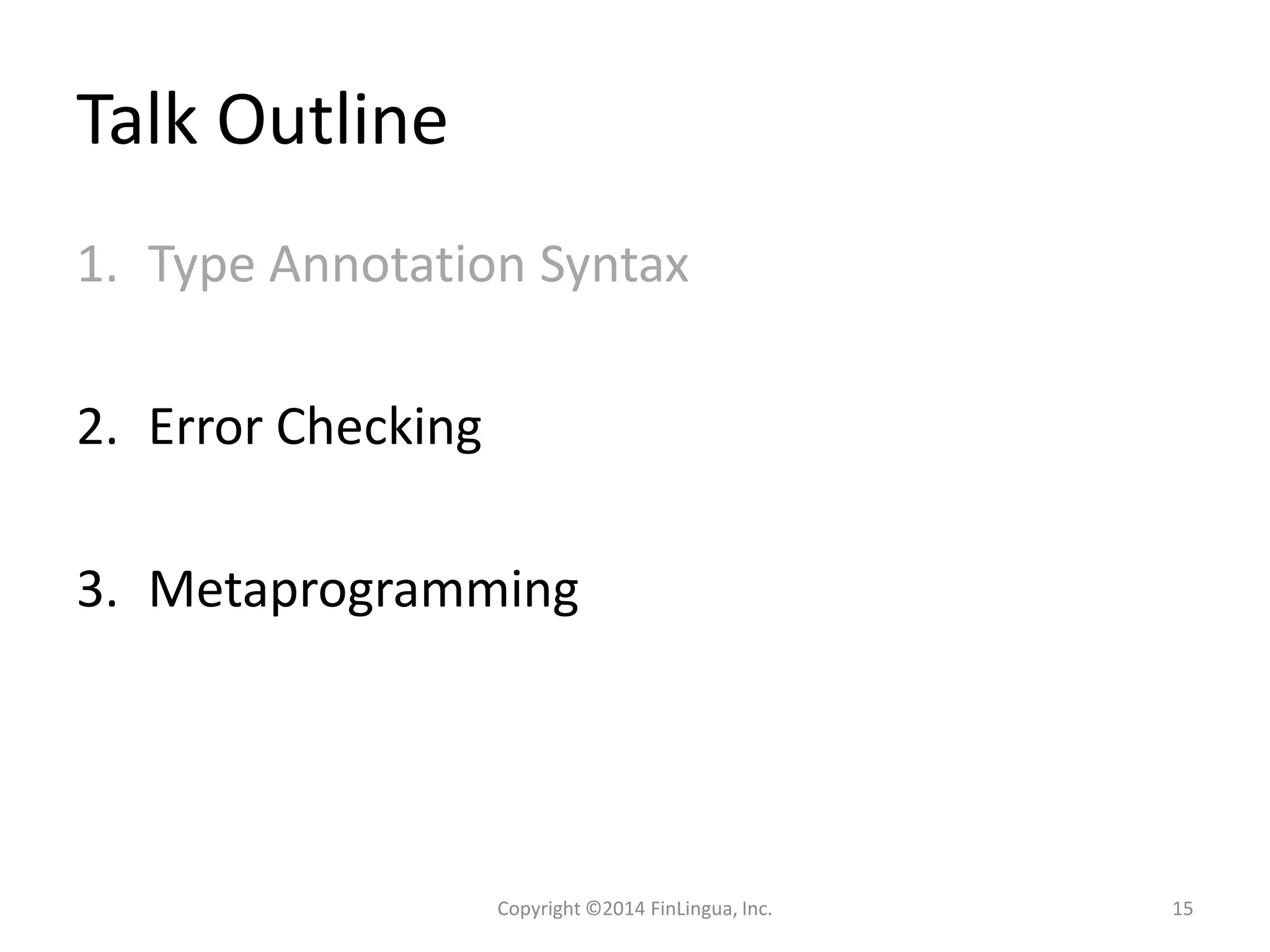
![Run-time Type Checking
Use Aspect Oriented Programming (AOP) to
insert run-time checks
Byte[] read(@Open MyFile this){
// Inserted by the AOP tool
if (!this.isOpen()){
throw new IllegalArgumentException(...);
}
...
}
Refined Claim: Type annotations don’t, on their own,
affect execution
Copyright ©2014 FinLingua, Inc. 16](https://image.slidesharecdn.com/java8typeannotations-online-140326155316-phpapp01/75/Type-Annotations-in-Java-8-16-2048.jpg)
